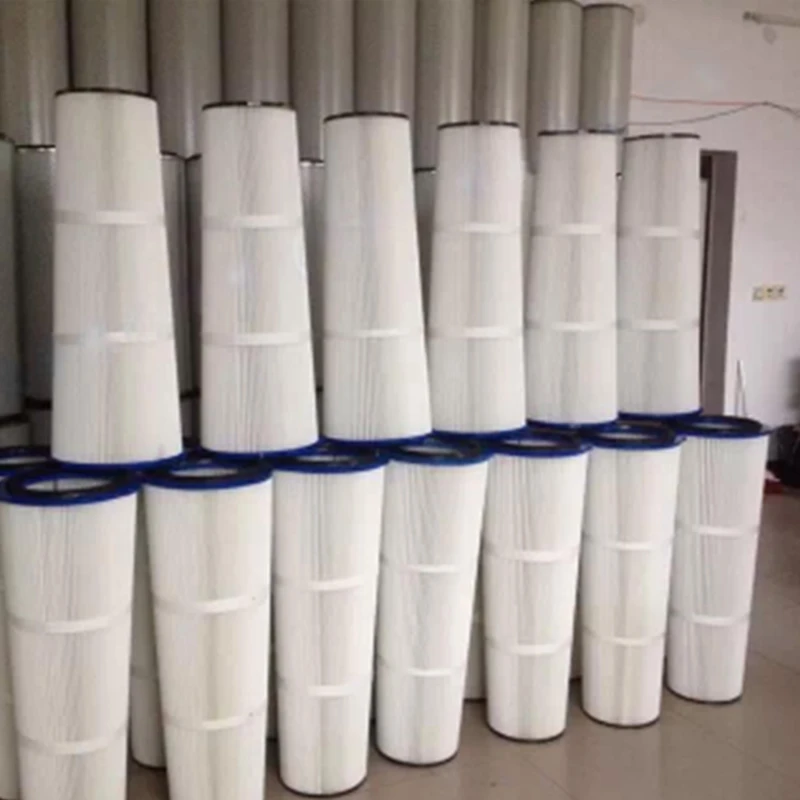 Tel:
+8615930870079
Tel:
+8615930870079
dec . 05, 2024 10:36 Back to list
cartridge vacuum filter
The Cartridge Vacuum Filter An Efficient Solution for Solid-Liquid Separation
In many industrial processes, the separation of solids from liquids is a critical step. This is where the cartridge vacuum filter comes into play. This filtration technology has gained prominence in various sectors, including mining, food and beverage, pharmaceuticals, and wastewater treatment. Its ability to efficiently remove solid particles from fluids makes it a valuable asset for industries seeking to improve their operational efficiency and product purity.
What is a Cartridge Vacuum Filter?
A cartridge vacuum filter is a type of filtration device designed to separate solid contaminants from liquids using a vacuum-driven process. The system consists of a series of cylindrical filter cartridges that are typically made from porous materials. These cartridges are housed in a filter chamber where the liquid is drawn through the filter medium by creating a vacuum. The solid particles are retained on the surface of the filter, while the clean liquid is collected for further processing or disposal.
How Does it Work?
The operation of a cartridge vacuum filter is relatively straightforward. The process begins with the introduction of the slurry (a mixture of solid particles and liquid) into the filter chamber. Once the slurry is in place, a vacuum is applied, creating a pressure difference that pulls the liquid through the filter cartridges. The solid particles, unable to pass through the filter medium, accumulate on the surface.
As the filtering process continues, a cake of solid material builds up on the cartridges. Depending on the nature of the slurry and the material of the filter cartridge, this cake can enhance the filtration process by acting as an additional barrier to the smaller particles. Over time, however, the filtration efficiency may decrease as the cake thickens, leading to the need for periodic backwashing or replacement of the filter cartridges.
Advantages of Cartridge Vacuum Filters
1. High Efficiency Cartridge vacuum filters are known for their high separation efficiency. The use of a vacuum helps in developing a strong driving force, allowing for effective removal of solids from liquids, even for very fine particles.
2. Low Operating Costs Compared to other filtration methods, cartridge vacuum filters can offer lower operational costs. The technology requires less energy and fewer chemicals, making it an economical solution for various applications.
3. Compact Design These filters are typically compact and require less space than traditional filtration systems. This makes them ideal for industries where space might be limited.
cartridge vacuum filter

4. Scalability Cartridge vacuum filters can be easily scaled to accommodate different volumes of slurry. This adaptability makes them suitable for both small batch operations and large continuous processes.
5. Ease of Maintenance Maintenance is straightforward, often involving simple cartridge replacement or backwashing processes. This reduces downtime and keeps operations running smoothly.
6. Versatility Cartridge vacuum filters can be used in a wide range of applications, from clarifying drinking water to recovering valuable minerals in mining. Their versatility makes them an essential tool across many industries.
Applications
1. Mining and Mineral Processing They are extensively used to separate minerals from water in mining operations, where recovery of valuable minerals is essential.
2. Food and Beverage The food industry uses cartridge vacuum filters for applications such as wine clarification and juice processing, helping to enhance product quality.
3. Wastewater Treatment In municipal wastewater treatment plants, these filters play a crucial role in removing solids from effluent before it is discharged back into the environment.
4. Pharmaceuticals The pharmaceutical industry relies on cartridge filters to ensure that products meet stringent purity standards by eliminating contaminants.
Conclusion
In summary, the cartridge vacuum filter is a robust and efficient solution for solid-liquid separation across various industries. Its ability to deliver high efficiency, low operating costs, compact design, and versatility makes it an integral part of many industrial processes. As industries continue to focus on sustainability and efficiency, the adoption of advanced filtration technologies like the cartridge vacuum filter will likely increase, driving innovation and improving product quality across the board. Embracing such technologies can lead not only to enhanced operational efficiency but also to a significant reduction in environmental impact, aligning industrial processes with modern sustainability goals.
-
Nano Fiber Technology: Revolutionizing Cartridge Dust Collector FiltersNewsAug.06,2025
-
How Activated Carbon Air Cartridges Eliminate OdorsNewsAug.06,2025
-
Dust Filter Cartridge Handling Fine Particulate MatterNewsAug.06,2025
-
Cartridge Dust Collector Filter for Welding Fume ExtractionNewsAug.06,2025
-
Activated Carbon Filter Cartridge Effectiveness Against VOCsNewsAug.06,2025
-
Activated Carbon Air Filter Cartridge Benefits ExplainedNewsAug.06,2025

 Email:
Email:





